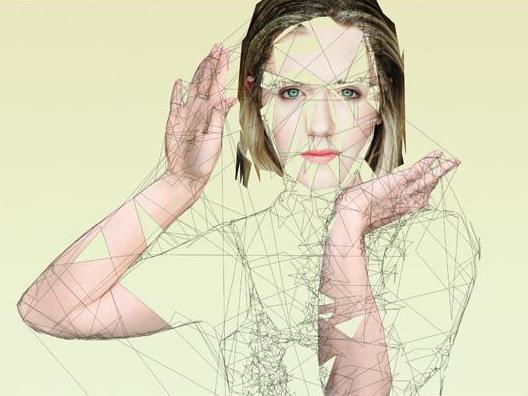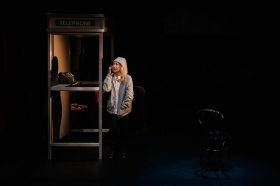Photo by: Collider. Source: Sydney Theatre Company.
A young woman, trapped by circumstance and societal convention, seeks emancipation in the only avenue available to women at the time – outside the law – and is subsequently entrapped by the law. Based on a true story, the premise of Machinal written by Sophie Treadwell 100 years ago was groundbreaking in it’s time, not only because of the subject matter, but also due to the fact that Treadwell was one of the few women writing about the female experience at the time.
By today’s standards, the subject matter is not particularly provocative in itself, and has even been translated into satire (as seen in Chicago). However, director Imara Savage has done a commendable job of reinterpreting this play in a thought provoking way that remains true to the essence of the play, while not relying on shock value to deliver meaning.
The subjective voice of the play, along with themes of madness, control and subjugation, would translate very nicely into an experimental rendering of the work. However, Savage’s minimalist interpretation was a refreshing and unexpected change. The innovative use of sound creates a suffocating and claustrophobic psychological space for the cast to enact their physical realities. By avoiding the temptation to bury a provocative story in a provocative style, she admirably dodges the cliché and crafts a profound connection between audience and character.
Harriet Dyer’s performance as the female lead is sensitive and mature. She creates a convincing journey arc from frightened young girl to desperate murderess. Feminist readings may criticise this performance for falling into a neurotic female stereotype, however I believe this transition is justified as events unfold. Dyer does not play the young woman to be ‘everywoman’, does not rely on emotional manipulation to seek sympathy, but rather achieves pathos for a mortal sin. Unlike other iconic female lead characters penned by men, she is not romanticised, her journey not objectified, she is simply utterly human. She may not be a typical strong feminist role model, but she has certainly earned respect by the play’s conclusion.
The supporting cast is noteworthy also – Brandon Burke is gleefully vile as Mr Jones and Ivan Donato’s chemistry as the lover and catalyst for rebirth of the protagonist is a welcome change of tone in an otherwise grim story. The hint of dark comedy brought by these two performers keeps the momentum building and the pace engaging.
It’s a depressing fact that a century after this play was penned, the themes of disempowerment and entrapment with respect to women’s societal roles are still just as relevant today. However I don’t believe the relevance of this play in modern times is due only to the relevancy of it’s themes. It’s longevity can also be attributed to the honesty of the characters, in not attempting to portray the experience of women as a whole, but instead, of one woman’s individual experience that was caused by social stereotyping. In presenting that individual narrative, this play becomes relevant not only to women, but to anyone who has ever suffered entrapment at the hands of social stereotyping and the legal framework.
Rating 4.5 out of 5 stars
MachinalPresented by Sydney Theatre Company
Written by Sophie Treadwell
Partially adapted from Arden of Faversham (1592)
Directed by Imara Savage
Designer David Fleischer
Lighting Designer Verity Hampson
Composer/Sound Steve Francis
With Robert Alexander, Matthew Backer, Brandon Burke, Ivan Donato, Harriet Dyer, Katie McDonald, Terry Serio, Wendy Strehlow
Wharf 2 Theatre, Sydney
23 Nov – 7 Dec





